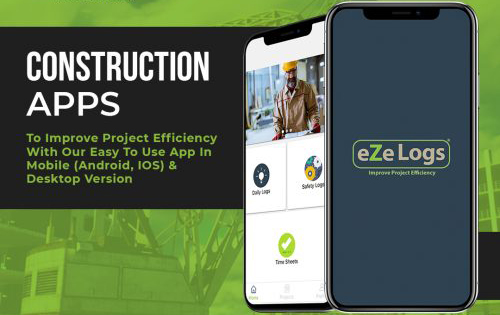Project management scheduling tools are a game-changer for the construction industry. They provide a comprehensive and efficient way to manage projects, from the initial planning stages to the completion of the project. These tools allow construction professionals to easily track progress, manage resources, create construction logs and ensure that projects are completed on time and within budget.

They also provide a platform for collaboration between stakeholders, allowing for better communication and coordination. With the help of project management scheduling tools, construction professionals can ensure that projects are completed on time and within budget, while also improving the overall quality of the project.
Benefits of Project Management Scheduling Tools in Construction
Project management scheduling tools are essential for successful construction projects. They help to ensure that projects are completed on time and within budget. Here are some of the key benefits of using project management scheduling tools in construction:
1. Improved Efficiency: Project management scheduling tools help to streamline the construction process by providing a clear timeline for each task. This helps to ensure that tasks are completed in the most efficient manner possible.
2. Increased Visibility: Project management scheduling tools provide a clear view of the entire project, from start to finish. This helps to ensure that everyone involved in the project is on the same page and that any potential issues can be identified and addressed quickly.


3. Reduced Risk: By providing a clear timeline for each task, project management scheduling tools help to reduce the risk of delays or cost overruns. This helps to ensure that projects are completed on time and within budget.
4. Improved Communication: Project management scheduling tools help to ensure that everyone involved in the project is kept up to date on the progress of the project. This helps to ensure that any potential issues are identified and addressed quickly.
Overall, project management scheduling tools are essential for successful construction projects. They help to ensure that projects are completed on time and within budget, while also providing improved efficiency, increased visibility, reduced risk, and improved communication.
How Project Management Scheduling Tools Work
Project management scheduling tools are designed to help project managers plan, organize, and manage their projects. These tools provide a visual representation of the project timeline, allowing project managers to easily track progress and identify potential issues.
Project management scheduling tools typically include a timeline view, which allows project managers to see the entire project timeline at a glance. This timeline view can be used to identify tasks that are behind schedule, as well as tasks that are ahead of schedule. It also allows project managers to quickly identify any potential conflicts between tasks.
Project management scheduling tools also include a task list view, which allows project managers to easily view and manage individual tasks. This view allows project managers to assign tasks to team members, set deadlines, and track progress. It also allows project managers to quickly identify any potential risks or issues that may arise during the project.
Project management scheduling tools also include a resource view, which allows project managers to easily view and manage resources. This view allows project managers to assign resources to tasks, track resource utilization, and identify any potential resource conflicts.
Finally, project management scheduling tools also include a reporting view, which allows project managers to easily generate reports on the progress of the project. This view allows project managers to quickly identify any potential issues or risks that may arise during the project.
Project management scheduling tools are an invaluable tool for project managers, allowing them to easily plan, organize, and manage their projects. By using these tools, project managers can ensure that their projects are completed on time and within budget.
Types of Project Management Scheduling Tools
Project management scheduling tools are essential for keeping projects on track and ensuring that deadlines are met. There are a variety of tools available to help project managers plan, organize, and manage their projects. Here are some of the most popular types of project management scheduling tools:
1. Gantt Charts: Gantt charts are a visual representation of a project timeline. They are used to track progress, identify dependencies, and plan resources. Gantt charts are a great way to keep everyone on the same page and ensure that tasks are completed on time.
2. Kanban Boards: Kanban boards are a visual way to manage tasks and resources. They are used to track progress, prioritize tasks, and identify bottlenecks. Kanban boards are a great way to keep everyone organized and ensure that tasks are completed efficiently.
3. Project Management Software: Project management software is a great way to manage projects. It can be used to track progress, assign tasks, and manage resources. It can also be used to generate reports and analyze data.
4. Spreadsheets: Spreadsheets are a great way to track progress and manage resources. They can be used to create budgets, track expenses, and analyze data. Spreadsheets are a great way to keep everyone organized and ensure that tasks are completed on time.
No matter what type of project management scheduling tool you choose, it is important to make sure that it is easy to use and understand. This will help ensure that everyone is on the same page and that tasks are completed efficiently.
Factors to Consider When Choosing a Project Management Scheduling Tool
When choosing a project management scheduling tool, there are several factors to consider. Here are some of the most important ones:
1. Ease of Use: The tool should be easy to use and understand, so that all team members can quickly get up to speed and start using it. Look for a tool that has a user-friendly interface and intuitive features.
2. Features: Make sure the tool has all the features you need to manage your project. This includes task management, resource management, timeline management, and reporting capabilities.
3. Cost: Consider the cost of the tool and make sure it fits within your budget. Some tools may offer a free trial period, so you can test it out before committing to a purchase.
4. Integration: Look for a tool that can easily integrate with other software and systems you use. This will help streamline your workflow and make it easier to manage your project.
5. Security: Make sure the tool has strong security measures in place to protect your data. This includes encryption, two-factor authentication, and other measures.
By considering these factors, you can find the right project management scheduling tool for your needs.
Future of Project Management Scheduling Tools in Construction
The future of project management scheduling tools in construction is bright. As the industry continues to evolve, so too will the tools used to manage projects. With the advent of new technologies, such as artificial intelligence (AI) and the Internet of Things (IoT), project management scheduling tools are becoming increasingly sophisticated and efficient.
AI-driven project management scheduling tools are already being used in the construction industry to automate mundane tasks, such as scheduling and resource allocation. This technology can help to reduce the amount of time and effort required to manage projects, freeing up resources for more important tasks. AI-driven tools can also help to identify potential problems before they arise, allowing for proactive problem-solving.


The IoT is also playing a role in the future of project management scheduling tools. By connecting devices and systems, the IoT can provide real-time data that can be used to make informed decisions. This data can be used to optimize project schedules, identify potential risks, and improve resource utilization.
Finally, cloud-based project management scheduling tools are becoming increasingly popular. These tools allow for remote collaboration and real-time updates, making it easier for teams to stay on top of their projects. Cloud-based tools also provide access to a wide range of data, allowing for more informed decision-making.
The future of project management scheduling tools in construction is bright. With the help of AI, the IoT, and cloud-based tools, project managers can expect to see more efficient and effective project management in the years to come.
Final Thoughts
Project management scheduling tools have revolutionized the construction industry, providing a powerful and efficient way to manage projects. By streamlining the process of project planning, scheduling, and tracking, these tools have enabled construction companies to reduce costs, improve efficiency, and increase productivity. With the help of these tools, construction companies can now easily manage their projects, ensuring that they are completed on time and within budget. In conclusion, project management scheduling tools are a game-changer for the construction industry, providing a powerful and efficient way to manage projects and ensure successful completion.


